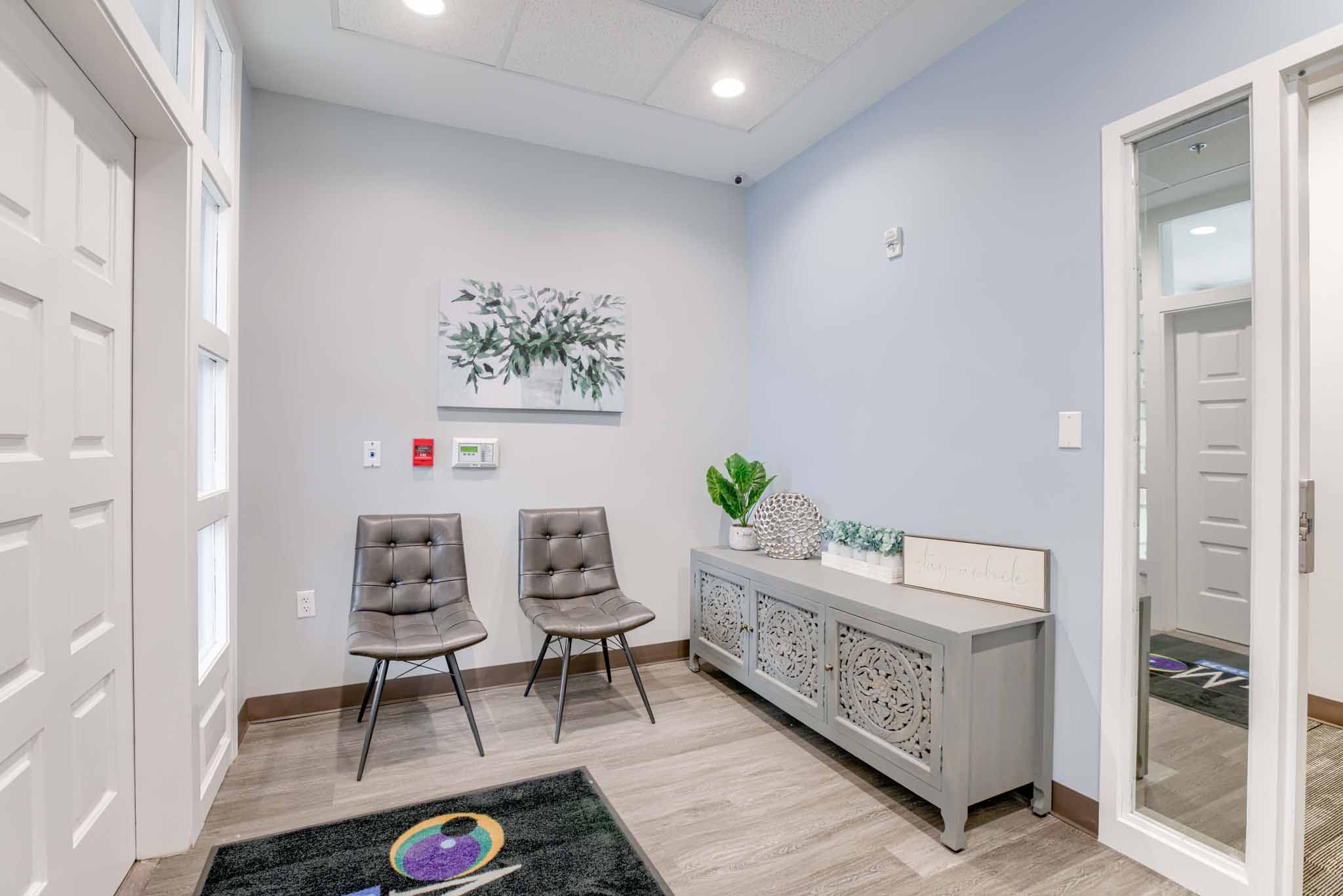Anxiety Treatment
We all feel apprehension, dread, worry, or fear from time to time, but there are instances where it’s more than a fleeting feeling related to a particular situation. If you’re dealing with these feelings on a regular basis to the point that it’s affecting your quality of life, you may have an anxiety disorder.
Anxiety can be troubling to deal with day-to-day, but it’s very much treatable with evidence-based and holistic approaches.

What Are Anxiety Disorders?
If we’re facing a situation that’s stressful or challenging, anxiety can be a normal reaction. Having mild anxiety can actually be beneficial in some circumstances. Anxiety helps alert us to danger and increase our sense of focus.
An anxiety disorder is different because the fear or anxiety you feel is excessive for the situation. Among mental disorders, those related to anxiety are most common, affecting almost 30% of adults during their lives at some point.
If you experience an anxiety disorder, it can lead you to avoid situations you find triggering. This can ultimately lead to problems at school or work and in relationships. For a general diagnosis of an anxiety disorder to be made, you must have fear or anxiety that’s not appropriate for your age or is out of proportion in the given situation. It also affects your ability to function normally.
Types of Anxiety Disorders
There are several types of anxiety-related disorders you may be diagnosed with. These are:
Generalized Anxiety Disorder
Thought to affect nearly 3% of adults in the U.S., generalized anxiety disorder is persistent, excessive feelings of fear or worry interfering with activities in daily life. You may also experience physical side effects like being easily fatigued, having problems concentrating, or muscle tension. Your worries may focus on everyday things like health, your job, or simple things such as appointments.
Symptoms of generalized anxiety disorder include:
- An inability to control your worry
- Feeling edgy or restless
- Fatigue
- Headaches, stomachaches, or other unexplained pain
- Sleep problems
- An inability to concentrate
- Irritability or frustration
Panic Disorder
Panic disorder affects 2-3% of people in the U.S. The main symptom is recurring panic attacks. Panic attacks are an overwhelming combination of distress that’s mental and physical. Panic attack symptoms can include:
- Pounding or rapid heart rate or heart palpitations
- Trembling or shaking
- Sweating
- Shortness of breath
- The sensation of smothering
- Chest pain
- Feeling faint or dizzy
- Feeling like you’re choking
- Tingling or numbness
- Hot flashes or chills
- Nausea or stomach pain
- Fear of losing control
- Feelings of detachment
- Fear of dying
The symptoms of panic attacks are usually severe, and it can feel like you’re experiencing something life-threatening. Panic disorder may co-occur with other mental health disorders, such as post-traumatic stress disorder.
Specific Phobias
When you’re affected by a phobia, you have an ongoing, excessive fear of a particular activity, object, or situation that’s not generally considered harmful. You know that your feelings are out of proportion to what you have a phobia of, but you can’t help it.
Agoraphobia is one of many examples where you have a fear of being in a situation that you can’t escape from, such as being in an open or enclosed space or using public transportation.
Social Anxiety Disorder
Social anxiety disorder leads to symptoms of fear and worry related to embarrassment or being judged by other people. You could feel such an intense fear of social situations that it’s out of your control entirely, and it could lead to avoiding school, work, or everyday activities.
Symptoms of social anxiety disorder may include:
- Trembling, sweating, or blushing
- Stomach pain
- Racing or pounding heart
- Speaking with an overly soft voice
- Having trouble with eye contact
- A fear people will judge you, or extreme feelings of self-consciousness
Obsessive-Compulsive Disorder
Obsessive-compulsive disorder, or OCD, is sometimes grouped with anxiety disorders. With OCD, you experience recurring ideas or thoughts that are unwanted. You feel like you have to do something repetitively to get rid of the thoughts, which are compulsions.
OCD-related thoughts are intrusive and persistent, disruptive to daily life, and disturbing to the person experiencing them. You then have rigid behaviors, and if you can’t engage in those, it can be deeply distressing.

Anxiety Risk Factors
As is true with other mental health disorders, anxiety is complicated. There is a combination of both environmental and genetic factors potentially raising the risk of having an anxiety disorder. For example, suppose you have a history of anxiety in your family, or you had exposure to adverse environmental events. In those circumstances, you may be at a greater risk of an anxiety disorder.
Anxiety Treatment Options
Anxiety is a chronic mental disorder, and if you struggle with it currently, you probably have it for a significant part of your life. With that being said, it’s also highly treatable with an individualized approach. A treatment plan for anxiety usually includes a combination of the following:
- Talk therapy: Also known as psychotherapy, talk therapy should be tailored to your needs. Cognitive-behavioral therapy, or CBT, is an evidence-based talk helpful therapy for anxiety. You learn different ways of thinking and behaving to help you feel less anxious and fearful. A subtype of CBT is exposure therapy, where you confront your anxiety triggers
- Acceptance and Commitment Therapy: ACT is different from CBT, relying on mindfulness and setting specific goals to reduce anxiety and discomfort
- Medication: While medicines aren’t a cure for anxiety, they can help reduce or alleviate symptoms. Antidepressants, beta-blockers, and short-term anxiety medicines can be part of an anxiety treatment plan.
- Support groups: You may find value in hearing from others with anxiety disorders and sharing your own experiences
- Stress management and coping techniques: Identifying healthy coping mechanisms can help with anxiety symptoms. For example, meditation and exercise are two highly effective lifestyle strategies for all anxiety disorders
Getting Treatment for an Anxiety Disorder
At Midwest Recovery Centers, we treat all anxiety disorders in our unique 45-day inpatient mental health program. We offer care in a supportive and structured environment, preparing you for successful re-entry to your daily life. Our treatment plans are designed individually for each patient and are holistic in their approach. We integrate physical and mental health care to help you achieve your goals. Reach out to learn more.




